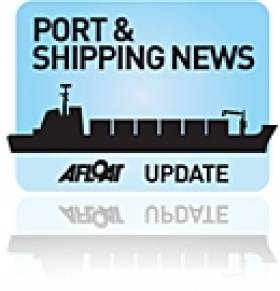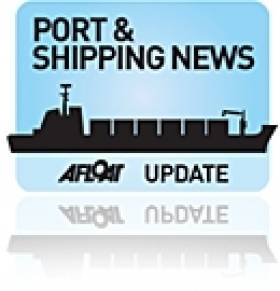Displaying items by tag: Ship finance
Ardmore Shipping Raise Finance for Current Newbuild Orders
#Ardmore – Ardmore Shipping Corporation has recently announced that it has signed a commitment letter for a new $172 million credit facility with ABN AMRO Bank N.V., Nordea Bank Finland Plc, and Skandinaviska Enskilda Banken AB (SEB).
The company which has its financial headquarters based in Mahon, Co. Cork, are to use the proceeds from the new facility which are expected to finance up to 65% of the purchase price of eight vessels on order from the company's current fleet.
The facility will be an amortizing senior term loan and available for borrowing until April 2016 with a final maturity date in January 2021. The covenants and other conditions are consistent with those of the Company's existing credit facilities. The terms include an accordion option whereby, subject to lenders approval, Ardmore may request to increase the facility to finance the acquisition of additional vessels.
Anthony Gurnee, Ardmore's CEO commented: "We appreciate the support of these leading banks and are pleased to have secured this financing commitment to fund the expansion of our modern fleet of product and chemical tankers. With this commitment, we will have successfully financed the majority of the vessels on order in our current fleet well ahead of their deliveries scheduled for late 2014 and 2015. We are also delighted to further expand the relationship with ABN AMRO and welcome Nordea and SEB to the Ardmore banking team. We look forward to working with them on this and future transactions".
"Additionally, we are in advanced discussions with a number of leading shipping banks on credit facilities related to our remaining two vessels on order and the Ardmore Seamariner and expect to finalize those agreements in the near term. At that time, we believe Ardmore will have secured debt financing for its entire current fleet, including all vessels in operation and all vessels on order."
The act is designed to assist in securing the future of the Irish shipping sector in which five new companies in 2010 entered the scheme, generating an increase of 44% in the number of vessels (from 154 to 177) covered by the Tonnage Tax. Half of these vessels range less than five years old with the total average age at eight years.
In addition the initiative has directly created 314 jobs in 2009 to nearly 350 jobs last year. Most of the employment is in specialised areas such finance,technical management, operations and chartering.
Commenting on the data, IMDO Director Glenn Murphy said "The results are a positive indication that after long periods of decline for the industry that policy support measures have encouraged investment which has led to growth and new employment. We are optimistic that direct employment
in the high value professional shipping services sector could double over the next five years leading to further investment and job creation opportunities"
The majority of Irish-based ship-owning firms operating within the ITT scheme are not entirely reliant on the Irish economy for their daily core revenue streams but are instead employed in the international shipping markets.
In 2010 the global shipping business had total charter trading transactions estimated at $450 billion dollars. It was a year in which the shipping markets continued to be quite volatile with most sectors still recovering from large charter earnings declines over the previous 12 months. Overall Irish firms were quite resilient in their ability to compete last year.
The growth in this sector in Ireland has been driven by established Irish-owned companies Arklow Shipping Ltd (ASL) and the Mainport Group and inward investment has come from D'Amico and Ardmore Shipping. The chemical and products tanker fleet operator located its headquarters to Cork last year and the company is backed by a large US private equity firm.
To read more from the report, you can request a copy by contacting the IMDO by e-mailing [email protected]

























































